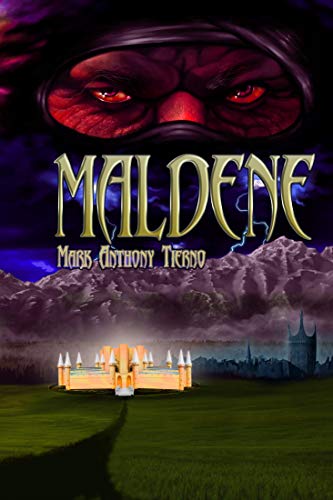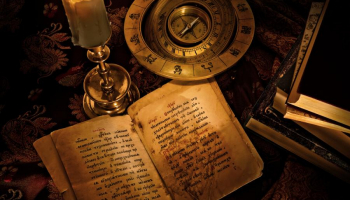
Hi, me again, this time with a few tips on how to write a villain. A great villain. A memorable one. Are you interested? Then read along!
Check Mark’s book below.
Amazon
Maldene: Volume One and Two
Features
| Is Adult Product | |
| Release Date | 2018-12-07T00:00:00.000Z |
| Language | English |
| Number Of Pages | 1002 |
| Publication Date | 2018-12-07T00:00:00.000Z |
| Format | Kindle eBook |
Every story needs a good villain, but a great story needs a great villain. So, just what comprises a great villain? Just having someone in a black hat that can unstoppably destroy everything he touches is a bit juvenile, too basic, and rather unimaginative. On the other hand a villain can’t be weak either. So let’s attempt to explore what exactly makes for a great villain.
The villain must be a BIG challenge: However strong, powerful, or intelligent your heroes are to be, the Big Bad must be even more so. Something that a group of your heroes can still stand before trembling, or why else would he be a threat?
Quick Tips on How to Write a Villain
Never be arbitrary: Simply having the guy go Pizzott to anything that gets near without figuring what his power or capabilities are, just will not do it. What exactly are his powers and abilities? Does he have any limits? Do his abilities work or not under certain circumstances? It’s okay for the villain to be really powerful, just make sure you have some specifics in mind. No “infinity blasts”.
Background: Everyone has a past, including the bad guy. It tells us where he gets his abilities and the reasons for doing whatever he’s doing. Finding the origin of a villains powers and skills is often the seed for a quest for the good guys to undertake that they may find his weakness and save the world. And you need to know how to write that background story well.
Use Reasoning: Everything needs a reason, some logic. So just as it’s not good so say “oh, he’s infinitely powerful” without giving any specific reasons, so to should any weak spot be logically derived, usually from his background or the nature of his abilities. So no “he has a deadly allergy to peanuts,” or “He’s vulnerable to the Magic Sword of Hooligan.” Give a reason, such as WHY he’s vulnerable to said sword and why not just any other magic doohickie.
Personality: A great villain needs a notable personality. Either it’s the insanity of the Joker, or something more cool and collected, he needs something to make him stand out. Some of the best villains are more subtle and crafty in their designs, extremely manipulative, while others give insanity a bad name. A good approach is to go with an extreme version of a desired personality trait.
No need to kill everything: just because he’s a villain doesn’t mean that he has to kill everything he comes across. He might only kill when he needs to, manipulate others into doing what he wants, control others, or twist someone into insanity. There should be an aura of fear felt by others around him, a promise of something malevolent, but not always instant death.
Big Stakes: The bigger the villain’s goal, the bigger the threat posed by his activities, the more important it is for the heroes to overcome the threat he poses. Just make sure the goal makes sense within the given context of your world background and likewise poses an appropriate threat. for instance, for a story set in the Dark Ages around some sparsely populated countryside, a big threat might be a tribe of marauders about to take out a village, while for a larger-scale more SF setting the big threat could be one of global destruction.
Don’t have the villain explain everything: Every villain needs a good plan, but he should never ever take time out to explain the details to his captured opponent while the cavalry is getting closer. Keep the details of his plan to yourself, letting pieces of it become apparent in the course of the story. You should never have to resort to the bad guy narrating it all to someone.
Show it: Don’t just SAY that he’s the most feared guy around; that’s good as a start, a bit of background, but you still need to SHOW it. Put in a couple of scenes that show him in action before you need him for the really big stuff. Something to give exhibit to why it is that people fear him so.
But above all, a good villain should be memorable, have that special something which even has his enemies admiring him while having them tremble in terror.
You May Also Be Interested in the Following Articles:
- The Best Space Opera Books Ever Written
- 5 Reasons You Need to Hire a Writing Coach for Your Next Book


 Amazon.com
Amazon.com








